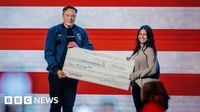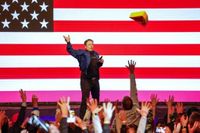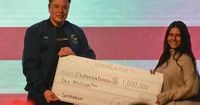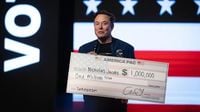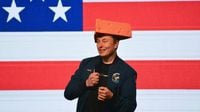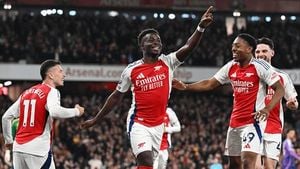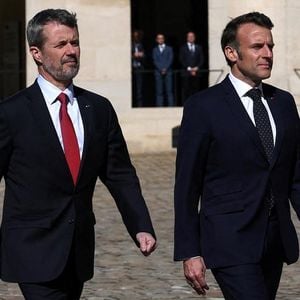Elon Musk made headlines once again as he handed out $1 million checks to two Wisconsin voters during a town hall event in Green Bay on Sunday, March 30, 2025. This extravagant giveaway came just hours after the Wisconsin Supreme Court rejected an attempt by state Attorney General Josh Kaul to block the event, which Musk positioned as pivotal for the upcoming Supreme Court election.
With a crowd of approximately 2,000 in attendance, Musk took the stage wearing a yellow cheesehead hat, declaring the election as critical not only for Wisconsin but for the future of the nation. "It’s a super big deal," he stated, emphasizing the stakes involved in the election for the state Supreme Court, which is set to take place on Tuesday, April 1, 2025.
Musk's motivation for the giveaway was to support conservative candidate Brad Schimel, a Waukesha County judge, in his bid against liberal candidate Susan Crawford. The outcome of this election could potentially shift the ideological balance of the court, which currently has a 4-3 majority held by liberal justices. Musk has reportedly invested over $20 million to bolster Schimel's campaign, raising concerns among opponents about the influence of money in politics.
Attorney General Kaul, a Democrat, sought to prevent the giveaway, arguing that it violated Wisconsin law, which prohibits offering anything of value to induce voting. In his filing, Kaul stated, "Wisconsin law prohibits offering anything of value to induce anyone to vote. Yet, Elon Musk did just that." However, both lower courts and the state Supreme Court declined to intervene, allowing Musk's event to proceed.
At the rally, Musk urged attendees to consider the implications of their vote. He framed the election as a referendum on President Trump's agenda, stating, "If the (Wisconsin) Supreme Court is able to redraw the districts, they will gerrymander the district and deprive Wisconsin of two seats on the Republican side." This was a clear indication of the significant political stakes involved, as the court's decisions could influence congressional redistricting and other critical issues.
In addition to the checks, Musk announced a new initiative called the "Block Captain" program, which incentivizes participants to post pictures with Schimel signs for a reward. This program is part of a broader strategy to mobilize grassroots support ahead of the election.
The Wisconsin Supreme Court's refusal to hear the case was particularly notable, given that it came just minutes before Musk was set to hand out the checks. The court did not provide a rationale for its decision, which has led to further scrutiny of the judicial process and the potential biases of the justices involved.
Musk's attorneys argued that the giveaways were a form of political speech protected under the First Amendment. They contended that the payments were designed to foster a grassroots movement against what Musk described as "activist judges" rather than to directly advocate for or against any specific candidate.
This is not the first time Musk has employed such tactics. In the lead-up to the 2024 presidential election, he offered similar cash prizes to voters in battleground states, a move that was ultimately deemed legal by a Pennsylvania judge.
As the election approaches, the atmosphere in Wisconsin has become charged with political fervor. The contest has shattered records for spending in a judicial election, with total expenditures exceeding $81 million, making it the most expensive in American history. The stakes are high, with key issues such as abortion rights and voting regulations likely to come before the court.
While Musk's involvement has garnered significant attention, it has also sparked protests from those who see his influence as detrimental to the democratic process. Supporters of Crawford have voiced their concerns, with some accusing Musk of attempting to buy a seat on the Supreme Court to secure favorable rulings for his business interests.
In a recent interview, Schimel distanced himself from Musk's financial contributions, asserting that he does not control the spending from outside groups. He emphasized his commitment to rejecting activist judges and adhering to the law, a stance that aligns with Musk's objectives.
As Wisconsin voters prepare to head to the polls, the implications of this election extend beyond state lines. Political analysts are viewing the race as a litmus test for Trump's influence and the Republican Party's direction in the upcoming midterms and beyond. The outcome could reshape the judicial landscape in Wisconsin and set precedents for future elections nationwide.
With such high stakes, the eyes of the nation will undoubtedly be on Wisconsin as the results come in on April 1, 2025. The intersection of money, politics, and judicial independence will be at the forefront of this critical moment in American democracy.
